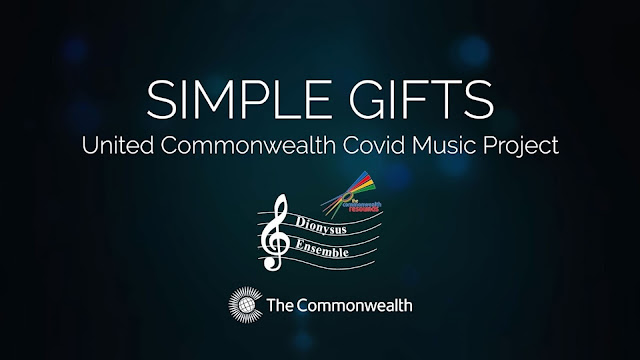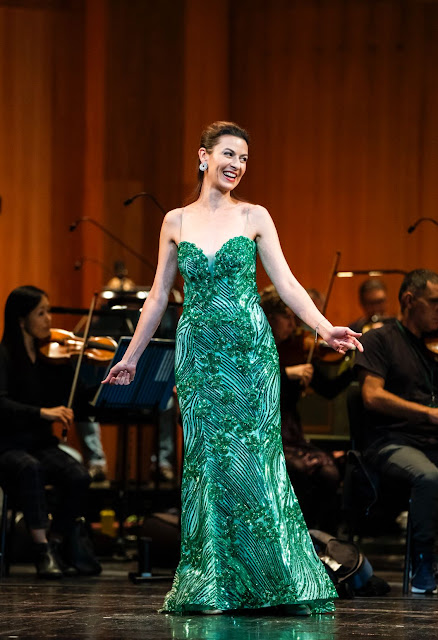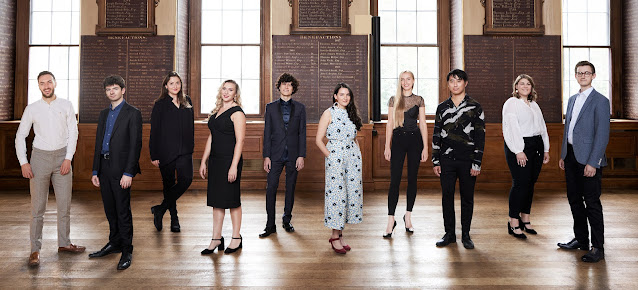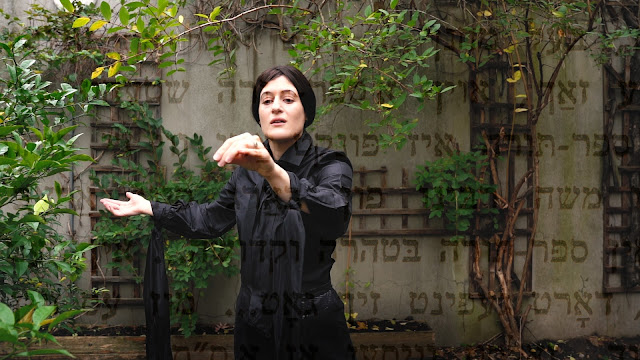In September this year an invitation went out from the Commonwealth Secretariat to invite musicians from all 54 countries in the Commonwealth to participate in an ambitious project. One musician has been selected from each country, and the musicians have recorded themselves performing alongside a track recorded by the Dionysius Ensemble. The final video, which will be released next month, will thus feature musicians from all 54 Commonwealth countries performing together in Michael Higgins arrangement of the Shaker hymn, Simple Gifts. (The Dionysus Ensemble's recording of Simple Gifts is available on YouTube.) As well as recording their contribution to the final video, each of the 54 Commonwealth musicians will be recording a short video introducing themselves and their country.
The idea behind the project is to demonstrate the power of music and art to lift spirits, improve mental health and encourage international camaraderie, as countries face up to the challenges of the pandemic.
The Dionysus Ensemble (founder and artistic director Léonie Adams) is the first-ever Ensemble in Residence for The Commonwealth Resounds, the accredited music organisation within the Commonwealth, and therefore the first time that the Commonwealth has had a professional musical ensemble officially attached.
Further information from the Dionysus Ensemble's website.






























%20in%20The%20Merry%20Widow.%20Credit%20Mihaela%20Bodlovic.%20(2).jpg)

%20in%20Trial%20by%20Jury.%20Credit%20Mihaela%20Bodlovic..jpg)

.jpg)
%20Britten%20Pears%20Arts%20(1).jpg)


